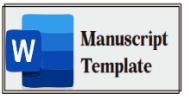STRUKTUR KEPEMILIKAN, UKURAN PERUSAHAAN DAN LEVERAGE
Abstract
Keywords
Full Text:
PDF (Bahasa Indonesia)References
Abarbanell, J. and B., Bushee. 1998. Fundamental Analysis, Future Earnings, and Stock Prices, Journal of Accounting, 35(1): 1-24.
Ali, Mohd Salsiah, Norman Mohd Salleh, and Mohamat Sabri Hasan. 2008. Ownership Structure and Earning Management in Malaysia Listed Company: The Size Effect, Asian Journal of Business and Accounting, 1 (2): 89-116.
Ardison, Kym Marcel M, Antonio Martinez, and Fernando Galdi. 2012. The Effect of Leverage on Earning Management in Brazil, Advanced in Scientific and Applied Accounting, 5 (3): 305-324.
Bushee, B. 1998. The Influence of Institutional Investors on Myopic R & D Investment Behavior. The Accounting Review, 73 (3): 305-333.
Darmawan, Deni. 2013. Metode Penelitian Kuantitatif. Bandung: Remaja Rosdakarya.
Dechow, P. M. and D. J. Skinner. 2000. Earnings Management: Reconciling the Views of Accounting Academics, Practitioners, and Regulators, Accounting Horizons, 14 (2): 235-250.
Fraenkel, J. R dan Wellen, N. E. 2008. How to Design and Evaluate Research in Education. New York: McGraw-Hill.
Fan, J. P. H. and Wong, T. J. 2002. Corporate Ownership Structure and the Informativeness of Accounting Earnings in East Asia. Journal of Accounting and Economics, 33: 401-425.
Fischer, Marilyn, and Kenneth Rosenzweig. 1995. Attitude of Students and Accounting Practitioners Concerning the Ethical Acceptability of Earnings Management, Journal of Business Ethics, 14 (6): 433-444.
Gore, Al. 1995. Common Sense Goverment, Works Better and Cost Less. New York: Random House.
Halioui, K. and Jerbi, A. 2012. The Effects of Blockholders on Earnings Management: The Case of Tunisian Listed Firms, International Journal of Multidisciplinary Research, 2 (2): 37-49.
Healy, P. and Wahlen, J. 1999. A Review of the Earnings Management Literature and its Implications for Standard Setting, Accounting Horizons, 13 (4): 365-384.
Iturriaga, F.J.L and Hoffmann, P.S. 2005. Earnings Management and Internal Mechanisms of Corporate Governance: Empirical evidence from Chilean Firms, Corporate Ownership & Control, 3 (1): 17-29.
Jelinek, K. 2007. The Effect of Leverage on Eearnings Management. The Journal of Business and Economics Studies, 13 (2): 24-108.
Jensen, M. & Meckling, W. 1976. Theory of the Firm: Managerial Behavior, Agency Costs and Ownership Structure, Journal of Financial Economics, 3 (4): 305-360.
Jiambalvo, J., Rajgopal, S., and Venkatachalam, M. 2002. Institutional Ownership and the Extent to Which Stock Prices Reflect Future Earnings. Contemporary Accounting Research, 19 (1): 117-145.
Jones, J. 1991. Earnings Management During Import Relief Investigations. Journal of Accounting Research, 29 (2): 193-228.
Kim, Y., Liu, C., dan Rhee, S.G. 2003. The Effect of Firm Size on Earning Management, Journal College of Business Administration University of Hawai, 6: 1-30.
La Porta, Lopez-de-Silanes and Shleifer. 1999. Corporate Ownership Around the World, Journal of Finance, 54 (2): 471-517.
Lennox, C. 1999. Are Large Auditors More Accurate Than Small Auditors?, Accounting and Business Research, 29 (3): 193-228.
Moses, D.O. 1997. Income Smooting and Incentives: Empirical Using Accounting Changes, The Accounting Review, LXII (2): 259-377.
Nabila, Afisa dan Daljono. 2013. Pengaruh Proporsi Dewan Komisaris Independen, Komite Audit, dan Reputasi Auditor Terhadap Manajemen Laba, Diponegoro Journal of Accounting, 2 (1): 1-10.
Noor, Juliansyah. 2013. Analisis Data Penelitian: Ekonomi dan Manajemen, Jakarta: Gramedia Widiasarana Indonesia.
Rahmawati. 2008. Motivasi, Batasan, dan Peluang Manajemen Laba (Studi Empiris pada Industri Perbankan yang Terdaftar di Bursa Efek Jakarta). Jurnal Ekonomi dan Bisnis Indonesia, 23 (4): 385-403.
Shleifer, A., & Vishny, R. W. 1986. Large Shareholders and Corporate Control, The Journal of Political Economy, 94 (3): 461-488.
Scott, William R. 2003. Financial Accounting Theory. Toronto: Prentice Hall.
Sercu, P., Vander Bauwhede, H. and M. Willekens. 2006. Post-Enron Implicit Audit Reporting Standards: Sifting through the Evidence, De Economist. 154 (3): 389-403.
Usman, Shehu Hasan dan Yero, Jibril Ibrahim, 2012. Ownership Concentration and Earning Management Practice of Nigerian Listed Conglomerates. American International Journal of Contemporary Research, 2 (7): 157-171.
Watts, R., and Zimmerman. 1978. Toward a Positive Theory of The Determination of Accounting Standards. The Accounting Reviews, 53 (1): 112-134.
Widyaningdyah, A.U. 2001. Analisis Faktor-Faktor yang Berpengaruh terhadap Earnings Management pada Perusahaan Go Public di Indonesia, Jurnal Akuntansi dan Keuangan, 3 (2): 89-101.
Zhao, Zhangguo, Liu Xiaoxia, Zhang Qing. 2009. Corporate Social Responsibility and Finance Management Reform - A Study Based on the Stakeholder Theory. Accounting Research, (3): 54-59.
DOI: http://dx.doi.org/10.15548/al-masraf.v1i2.59
Refbacks
- There are currently no refbacks.

This work is licensed under a Creative Commons Attribution-NonCommercial-ShareAlike 4.0 International License.
View My Stats

